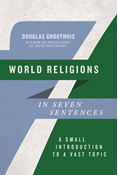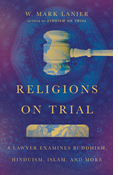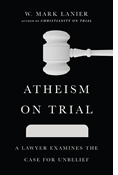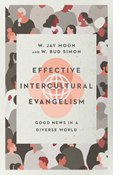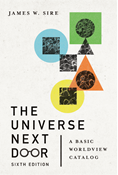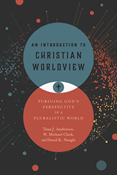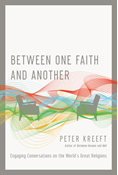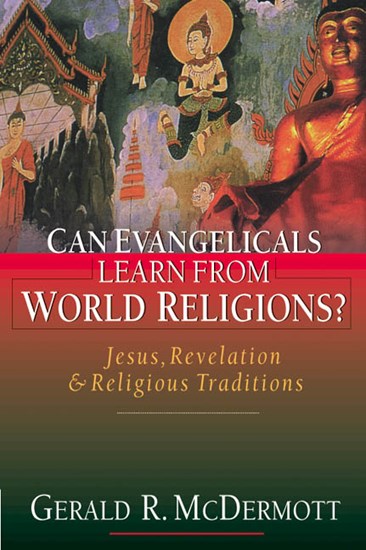
|
Can Evangelicals Learn from World Religions?
paperback
|
- Length: 233 pages
- Dimensions: 5.5 × 8.25 in
- Published: August 15, 2000
- Imprint: IVP Academic
- Item Code: 2274
- ISBN: 9780830822744
-
Other Retailers:
Amazon*
*affiliate partner
- A 2001 Christianity Today Award of Merit winner
"Arguably, the church's greatest challenge in the next century will be the problem of the scandal of particularity. More than ever before, Christians will need to explain why they follow Jesus and not the Buddha or Confucius or Krishna or Muhammed. But if, while relating their faith to the faiths, Christians treat non-Christian religions as netherworlds of unmixed darkness, the church's message will be a scandal not of particularity but of arrogant obscurantism.
"Recent evangelical introductions to the problem of other religions have built commendably on foundations laid by J. N. D. Anderson and Stephen Neill. Anderson and Neill opened up the "heathen" worlds to the evangelical West, showing that many non-Christians also seek salvation and have personal relationships with their gods. In the last decade Clark Pinnock and John Sanders have argued for an inclusivist understanding of salvation, and Harold Netland has shed new light on the question of truth in the religions. Yet no evangelicals have focused--as nonevangelicals Keith Ward, Diana Eck and Paul Knitter have done--on the revelatory value of truth in non-Christian religions. Anderson and Neill showed that there are limited convergences between Christian and non-Christian traditions, and Pinnock has argued that there might be truths Christians can learn from religious others. But as far as I know, no evangelicals have yet examined the religions in any sort of substantive way for what Christians can learn without sacrificing, as Knitter and John Hick do, the finality of Christ.
"This book is the beginning of an evangelical theology of the religions that addresses not the question of salvation but the problem of truth and revelation, and takes seriously the normative claims of other traditions. It explores the biblical propositions that Jesus is the light that enlightens every person (Jn 1:9) and that God has not left Himself without a witness among non-Christian traditions (Acts 14:17). It argues that if Saint Augustine learned from Neo-Platonism to better understand the gospel, if Thomas Aquinas learned from Aristotle to better understand the Scriptures, and if John Calvin learned from Renaissance humanism, perhaps evangelicals may be able to learn from the Buddha--and other great religious thinkers and traditions--things that can help them more clearly understand God's revelation in Christ. It is an introductory word in a conversation that I hope will go much further among evangelicals." (Gerald McDermott, in the introduction to Can Evangelicals Learn from World Religions?)
"This book makes a solid contribution to the evangelical theology of religions. Leaving aside the issue of the fate of the unevangelized, it leads us to expect to learn from people of other faiths and not suppose that they have nothing to teach us. What a gracious and open spirit this message frees us to have."
"Evangelicals have been wary of engaging at any depth with faiths other than Christianity. Commitment to the 'scandal of particularity' has meant that many never consider what the revelatory value of non-Christian religions might be. Gerald McDermott provides a beautifully written, timely and much-needed contribution to a field where most evangelicals fear to tread."
"Can one's Christian faith be enriched by encounter with the Analects of Confucius? Could God's saving deed and disclosure in Jesus Christ alone include a wider grace at work in the wisdom of other world religions? Evangelical Gerald McDermott says yes. With warrants from Scripture and the tradition of Jonathan Edwards, and a good grasp of today's debates on religious pluralism, he makes his case by scrutiny of key writings on non-Christian religions. Here is a fresh voice that needs to be heard in the current conversation."
CONTENTS
Acknowledgments
Introduction
1. Evangelicals the World Religions
2. What Is Revelation?
3. Biblical Suggestions
4. Theological Considerations
5. An Old Pattern: Christian Theologians Who Plundered the Egyptians
6. Buddhist No-Self No-Mind
7. A Daoist Theology of Camouflage
8. The Confucian Commitment to Virtue
9. Muhammed the Signs of God
10. In Conclusion: Objections Responses
Appendix: God the Masculine Pronoun
Index of Names Subjects
Index of Scripture References



